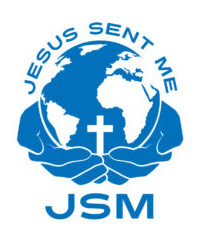

On some days, your circumstances and your physical condition
feel out of balance: The demands on you seem far greater than your strength. Days like that present a choice between two alternatives—
giving up or relying on Me.
Jesus Calling, September 8
My young son was in a drugged sleep on a potent drip of antibiotics. He needed two more surgeries in his tender brain, which would bring the total to five since the massive hemorrhage in his brain tumor three months earlier.
There had been glimmers of light. He’d laughed, and I’d even heard his voice at the neurological rehab where he was learning how to walk, talk, and eat all over again. He was coming back, then he’d had a setback. More surgeries were scheduled.
I called my friend Joan and explained the situation.
“You don’t think you can do it,” she said.
“Yes,” I whispered, relieved that someone understood I couldn’t do another hour, much less a month, or six. I was emptied out. Alone. Holding onto my faith had felt like so many fistfuls of dry sand.
You’re doing it!
“You’re doing it,” Joan said, pausing so the words could filter through my achy, tired mind.
She was right; I was doing it. I still am.
The clarity of that moment changed me. This is what it feels like to be faithful sometimes: without answers, afraid, exhausted, not feeling up to the task but showing up anyway.
Faith is a muscle
In that moment, strength flowed through me, and I refused to give up. I realized then that faith is less an idea and more of a muscle, one that grows stronger every time I take the next step, not knowing where my foot is going to land.
As I thought more about my new realization, I began to see other ways to strengthen my muscle of faith:
1. Remember that faith comes in the dark.
We are limited by what we can see and know. Sometimes we’re afraid and unsure. Jesus understands. He knows what it feels like to be limited by human eyes, unable to see the other side of the horizon. We are loved through all the doubt and pain. We might feel alone, but we aren’t. It helps to remember that God fills the abyss just like He fills the sky.
2. Find just enough faith for today.
I am a planner, which is usually a good thing. There is a moment, however, when preparation and troubleshooting morph into obsessive worrying. Worrying is to problem solving what chewing gum is to nutrition. Often I’m trying to control an outcome that is too big for an ordinary human.
These are the times to pause and ask God to show me my next step. And sometimes the answer is just one small task: call a friend, make that appointment, rest. We do what we can moment by moment and get through from one breath to the next. Our worry has no superpowers; a loving God holds the results.
3. Be where your feet are.
My fear tells me, “I can’t do this,” whatever this is. The overwhelm spirals, and the ground below seems to liquify. It helps to slowly inhale and gently bring myself back to the here and now—not next week when this might happen, or last month when that should’ve happened—but right here where God is waiting to help. I’m always surprised that, most of the time, I’m okay right now. You may find that you are too.
4. Have compassion for others—and yourself.
This isn’t the time to embrace impossible standards toward ourselves or others. We are going to make mistakes, and so will the people around us. Let’s assume they have good intentions. When that’s not possible, can we pray for the willingness to forgive? Resentment is not only distracting, it’s exhausting.
Crisis reveals the blockages that keep us separate from God’s love. It’s up to us to offer understanding, and kindness where kindness is lacking. Compassion has a wonderful overflow: the more we give, the more it fills us. Every interaction is an opportunity to put more love into the world instead of more anger and annoyance.
5. Cultivate faith that’s gentle and steady.
Think of difficult times like a marathon. We must keep ourselves hydrated and nourished physically, emotionally, and spiritually. No one else can do this for us. I had to let go of the idea that it’s selfish to take care of myself during a crisis. A well-cared-for me is a gift to my family.
Focus on what’s doable today. Can you eat something healthy? Take a walk? Listen to music that makes you smile? Sometimes we just need to stop and rest. That’s okay. Talk to yourself in the voice you would use with a beloved child. Naps are good.
6. Start where you are.
I’m loved despite my doubts, judgments, and pettiness. I’ve learned to bring my whole self to God, and to my friends too. I have to say what’s true. Sometimes we just need someone to hear how hard it is. We need people whose faith we can lean into when our own feels fragile. The most profound, loving act is to sit with someone in the uncertainty without judging or trying to fix them.
Muscle memory is built by trudging through days that are too steep and long. Spiritual growth seems to be the point, releasing the limits we put on God with our finite human minds. We can be so focused on what we think the miracle should look like that we miss the miracle of what is, the improbable good. Grace shows up for us, through us, and sometimes despite us. And there is always love big enough, no matter what the circumstance.
I will infuse My strength into you moment by moment,
giving you all that you need for this day.
Trust Me by relying on My empowering Presence.
Jesus Calling, September 8
J anine Urbaniak Reid is the author of The Opposite of Certainty: Fear, Faith and Life in Between. She has been published in the Washington Post, Chicago Tribune, San Francisco Chronicle, and widely syndicated. Hoping to bring humanity into the healthcare discussion by sharing her experience as a mother of son with a brain tumor, she penned a piece for the Post which
anine Urbaniak Reid is the author of The Opposite of Certainty: Fear, Faith and Life in Between. She has been published in the Washington Post, Chicago Tribune, San Francisco Chronicle, and widely syndicated. Hoping to bring humanity into the healthcare discussion by sharing her experience as a mother of son with a brain tumor, she penned a piece for the Post which went viral. Janine writes about her imperfect life, what connects us, and addresses the question of what it means to love fiercely in a sometimes dangerous and always uncertain world. She lives in Northern California with her family and a motley assortment of pets. Visit her at JanineUrbaniakReid.com.
went viral. Janine writes about her imperfect life, what connects us, and addresses the question of what it means to love fiercely in a sometimes dangerous and always uncertain world. She lives in Northern California with her family and a motley assortment of pets. Visit her at JanineUrbaniakReid.com.
Trending Products











